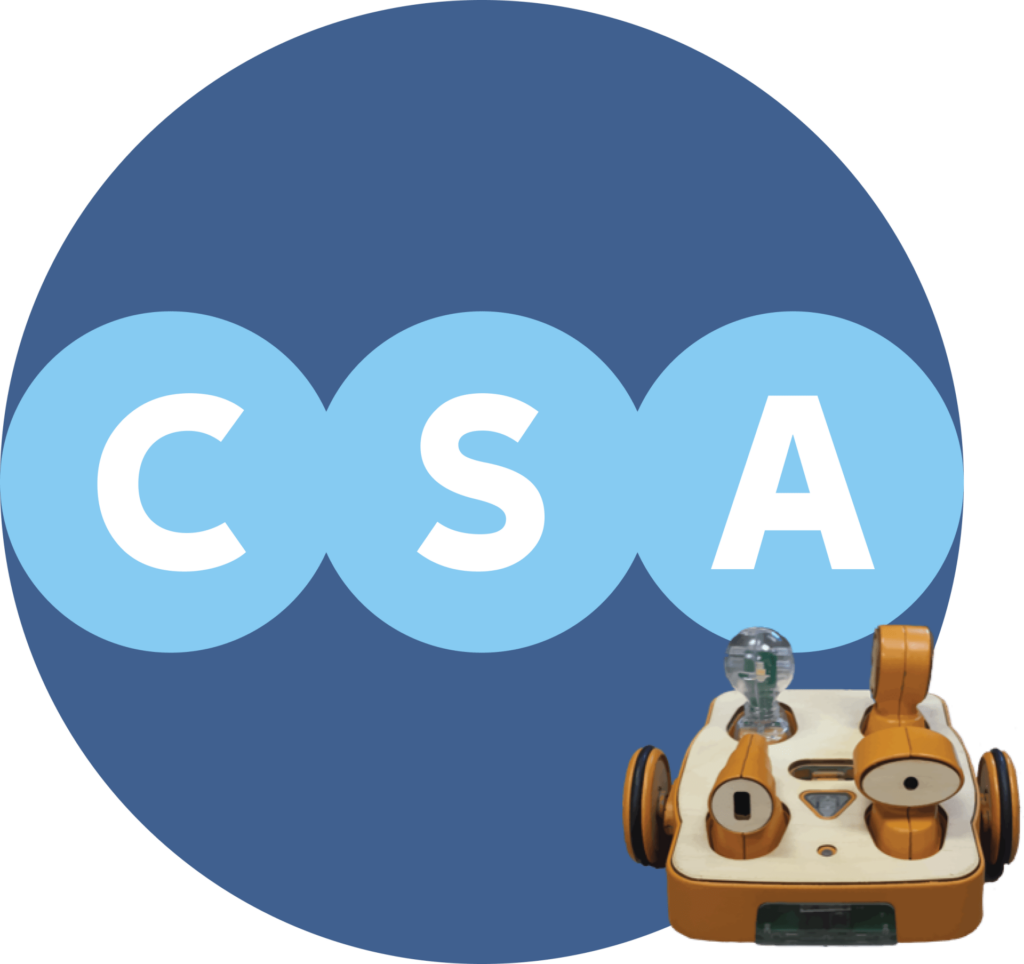
CSA-KIBO Overview
The KIBO Coding Stages Assessment (CSA) assesses a person’s progress in learning the KIBO programming language (Strawhacker, Relkin, & Bers, 2022). The assessment probes the five Coding Stages (Emergent, Coding and Decoding, Fluency, New Knowledge, and Purposefulness) that learners go through when engaging with KIBO and KIBO curricula. This assessment is conducted either one-on-one or asynchronously online by asking the child or teacher interactive and open-ended programming questions and is typically referred to as “Robot Games” with children. The assessment is designed to stop when a person has reached a certain threshold for incorrect answers, so as not to exhaust or frustrate novice coders, while still challenging experienced coders. Because of this design, the assessment can take anywhere from 5-45 minutes. To read more, please see our Publications page.
Sample Items
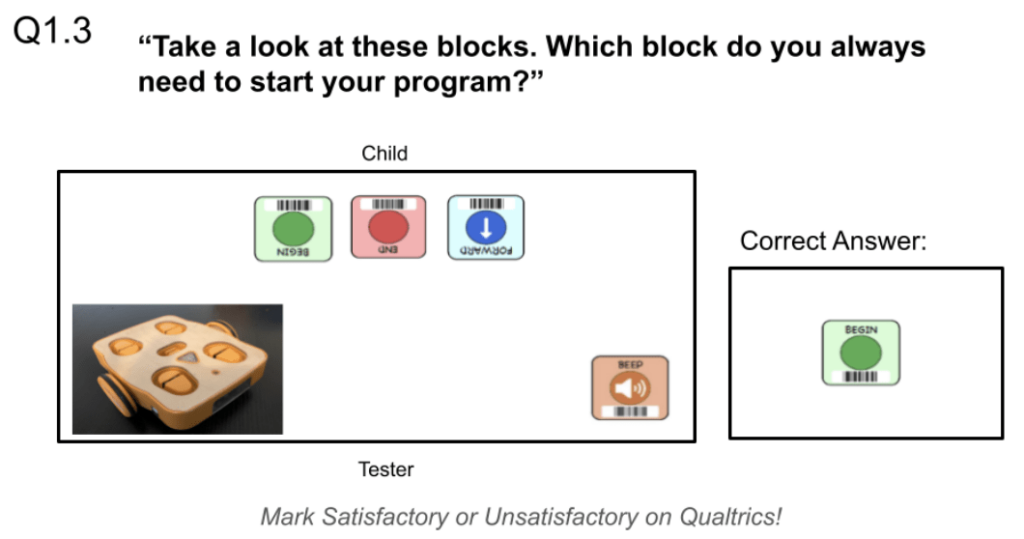
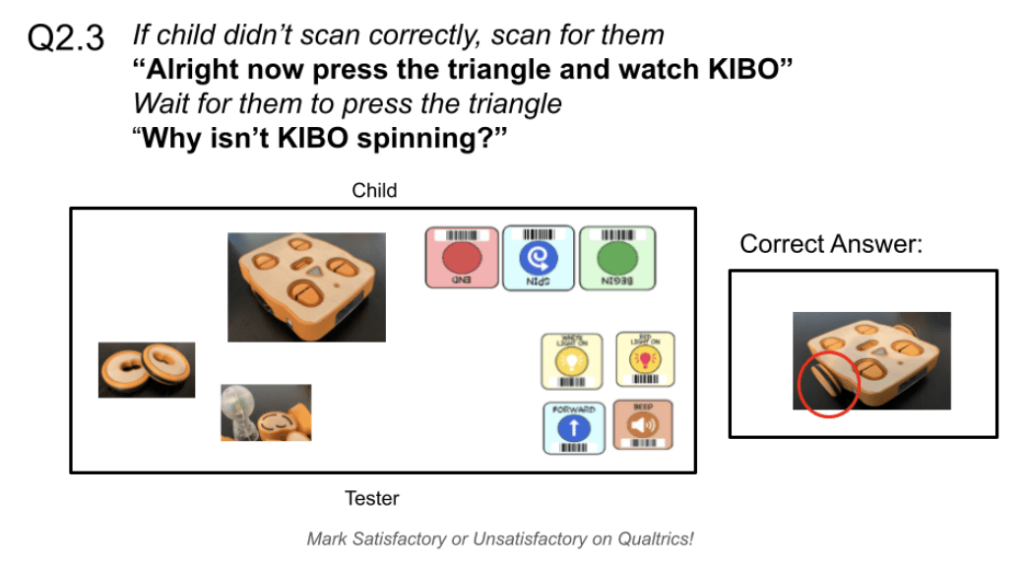
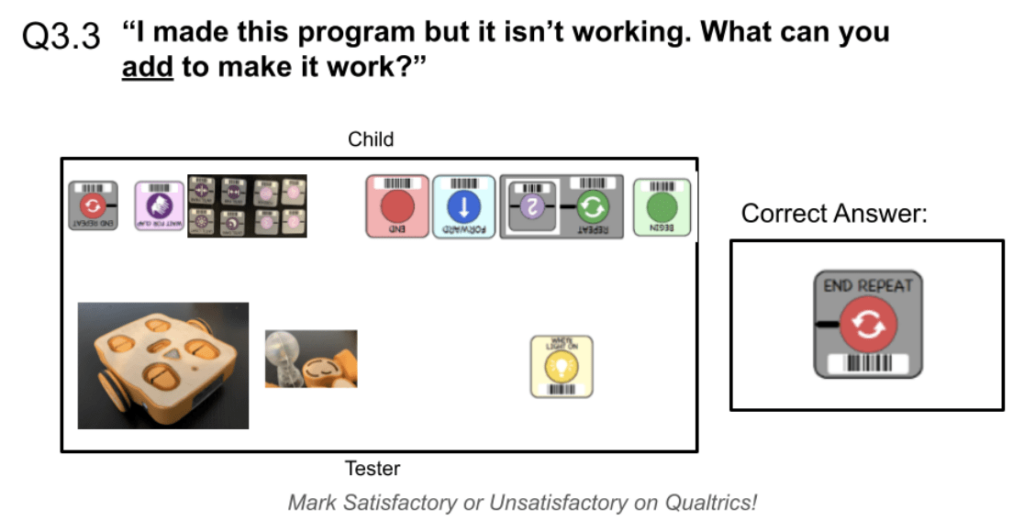
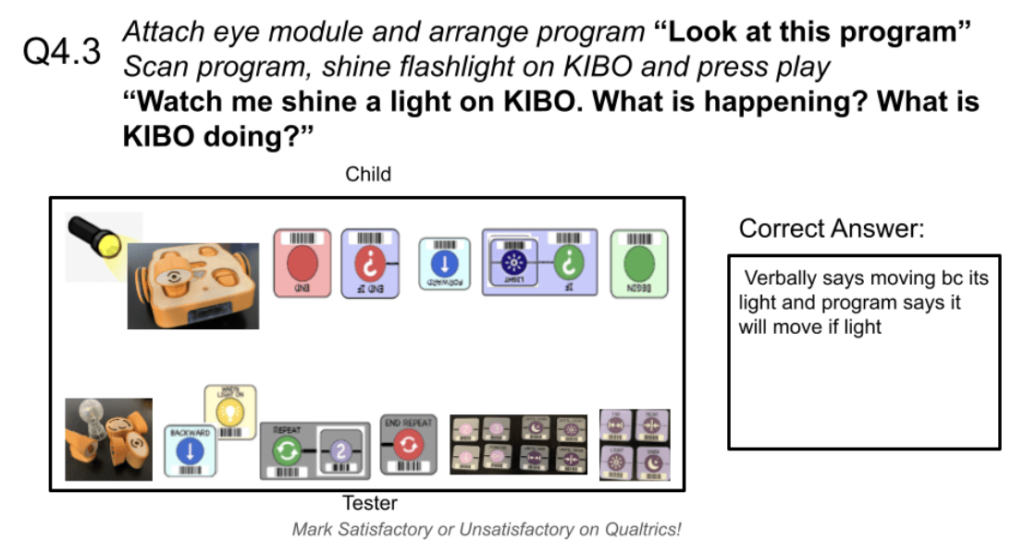
FAQs
What if the KIBO doesn’t have batteries?
Do not start the assessment. Wait until you can get a KIBO with batteries or new batteries to change out.
What if the child wants to see all of the blocks and cannot focus on what’s in front of them?
Place the rest of the KIBO kit in a bag to the side or under a table so that they are out of site. Encourage the child to return their focus to the relevant blocks by repeating the question and pointing to the blocks in front of them.
What do you do if the child gets too frustrated to continue?
Offer a break. If they don’t calm down from the break, tell them they did a great job and that you’re all done for the day. Mark in the comments that the session is ending early and then mark unsatisfactory for remaining questions.
What do you do if you have to end early?
Mark remaining questions as unsatisfactory with “end early” in comments. Then notify your superior.
What do you do if the teacher or parent is trying to help?
Mark in the comments any questions that you think the adult interfered with and then kindly remind the adult that you’d like the child to answer on their own:
“Hi ___, thank you so much for supporting [child name] but we’d actually like to have them try to answer on their own. [child name], do you want to hear the question again? Or do you want to try the next question?”
Need help? Please email devtechresearch@bc.edu.
